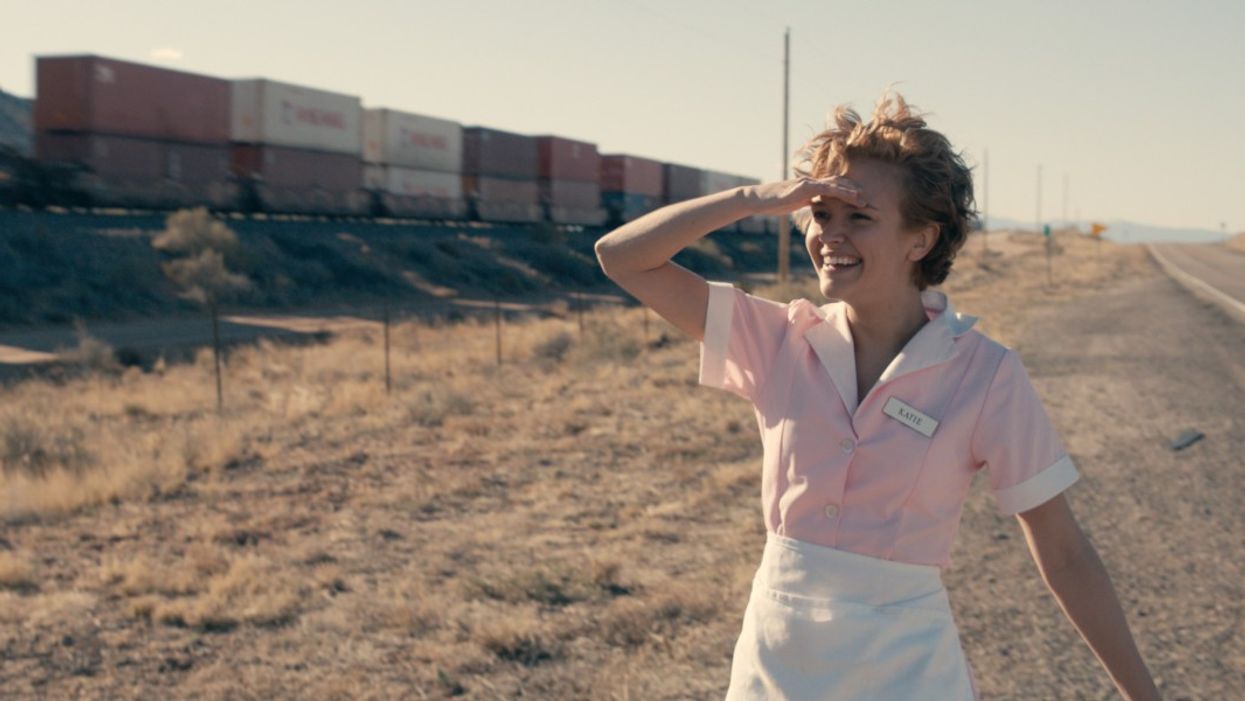Write Characters with Room for Actors: Wayne Roberts and Christopher Abbott on 'Katie Says Goodbye' [PODCAST]
Emphasis on character and performance led first time director Wayne Roberts to a stunning TIFF premiere.

Katie Says Goodbyeis screenwriter/director Wayne Roberts' first feature. Unlike most first features, however, it had its world premiere earlier this year in front of a packed house in the middle of one of the world's biggest film events: Toronto International Film Festival.
In the film, Olivia Cooke throws her name into the best actress ring starring as the titular Katie, an ever optimistic diner waitress who doesn't let the harsh realities of her Arizona homestead break her down. Instead, she focuses on earning enough money to finally break out of her trailer park and make a move to San Francisco. Her preferred method in fundraising? Prostitution. Needless to say, this leads to some challenges in her life, especially when she starts dating Bruno, stoically portrayed by Christopher Abbott, a mechanic with a history of grand theft auto.
"The character will do the telling for you, and you simply just allow that wave to ride as long as you possibly can."
I sat down with Abbott and Roberts to discuss how a writer's work is best achieved by getting rid of any hesitations and letting their characters speak through them. For Roberts, Katie's character first started speaking to him ten years ago as he made his way through undergrad film school at NYU.
As a student at Tisch, Roberts found himself in good company, running in a tight knit circle with the likes of Sean Durkin, Josh Mond and Antonio Campos. These three would later go on to form the Borderline Films collective, and play a key role in motivating Roberts to finally get Katie's story on screen.
Roberts first sat down to write the script three years ago and, for him, the process was almost spiritual. "You channel something if you're lucky," he recalls. "The character will do the telling for you, and you simply just allow that wave to ride as long as you possibly can."
"Just love your characters and it doesn't really matter what differences you hold."
It didn't matter that Roberts and his character Katie were vastly different. In order to find this sort of ease in practice, it's best to focus on your character's internal life. "Just love your characters and it doesn't really matter what differences you hold," he explained. "Whether it be your gender, your sexuality, your race, it doesn't matter. We're all basically the same person. I think the differences we have are mostly external and things that we don't have a lot of control over, but in terms of the quality of a person, it's basically all the same. Just allow your characters to speak to you and trust them.”
In addition to trusting his characters, an integral part of Roberts' screenwriting strategy lies in trusting his actors. He writes for actors to have as much freedom as possible. In his opinion, actors need to have room to live in their characters. This is why he tried to keep his script as barebones as possible.
"If you want to make an actual film or a piece of work that can change somebody, then you are entirely dependent upon your actors. Those are the people that are making your story come to life."
That sparseness can truly be felt through the screen, and the performances of Roberts' lead actors clearly was enhanced by his style. Christopher Abbott claimed he was drawn to this quality, commending Wayne on having "a beautiful way of leaving the script open." He added, "You have all the information that you need and nothing more. As actors, there's enough space in there that you know what you need to add into it and there's enough information for you not to go overboard."
Katie Says Goodbye is a searingly dark, performance-driven character study of a film, and Roberts' love for his characters as well as his "acting-trumps-all" mentality lead to great rewards in his final product. "I don’t give a damn about stylized films," he insisted. "If you want to do that then do music videos or Colgate commercials. If you want to make an actual film or a piece of work that can change somebody, then you are entirely dependent upon your actors, those are the people that are making your story come to life."
Please subscribe and rate us on iTunes, Soundcloud, or the podcasting app of your choice. You can play all of our No Film School interview episodes right here:

 'Anora'Neon
'Anora'Neon Annie Johnson Kevin Scanlon
Annie Johnson Kevin Scanlon









